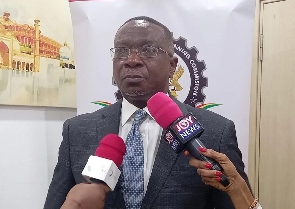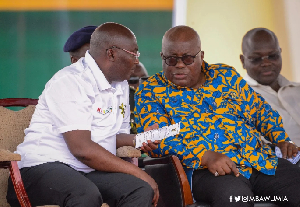The country’s socio-economic transformation and growth hinges on how it can intentionally invest in its human capital, the National Development Planning Commission (NDPC) has said.
Making a strong case for human capital development to be given increased attention, it said urgent strategies and steps are needed to enhance and optimise the skills, knowledge, abilities and overall potential of the Ghanaian workforce.
During a stakeholder meeting held in Accra to solicit inputs and create a participatory approach toward developing the strategy, it noted that: “Ghanaian institutions, including government and its public sector, set the standard for performance and ensure that all relevant indices are accounted for.
However, despite having a workforce with the necessary educational qualifications, we face challenges in implementing the structures effectively. Therefore, the human capital development strategy aims to address these challenges and unlock the full potential of our institutions.
“This strategy recognises the importance of investing in people and their well-being to improve individual and collective performance, productivity and overall contribution to the nation’s development.
“It involves assessing current and future workforce needs, identifying skill-gaps, and aligning human resources with organisational goals and objectives. Achieving this will require a renewed mind and attitudinal change,” it added.
The importance of human capital development in socio-economic transformation is recognised globally, and many countries have implemented programmes to invest in their people.
Given the rapid advancement in technology and demand for skills in the 4th industrial revolution, the NDPC believes the country must strategically invest in its people to foster innovation and development.
This is critical, it said, as the country aspires to become a high-income status one by 2057, with equitable and inclusive human capital development that is essential to address skill-gaps and promote socio-economic development.
Creative exploitation
In a speech read on his behalf by Senior Technical Advisor, Jonathan Azasoo, the Director-General of NDPC, Dr. Kodjo E. Mensah-Abrampa, emphasised that developing human capital is also crucial for creative and sustainable exploitation of the country’s abundant natural resources.
He explained that it is paramount to ensure that these endeavours are conducted in a sustainable and responsible manner, taking into account environmental conservation and the well-being of local communities.
By investing in education, skills development, innovation and entrepreneurship, it said, the country can unlock the full potential of its abundant human resources.
For his part, the Vice-Chancellor of Central University – who is a commissioner at NDPC, Prof. Bill Buenar Puplampu, stated that no country can expect coordinated growth without developing its human capital.
He added that human capital development goes beyond education and employment, but is rather “the skill sets, mindsets and dispositions which are required to make a society develop economically, run sustainably, equitably, competitively and in an orderly manner”.
Prof. Puplampu said it is about time the country determines what kind of economy and society it wants, within what period, and what capacities are required to grow the economy.
The Programme Coordinator of the Friedrich Ebert Stiftung Economic Policy Competence Centre (FES-EPCC), Eunice Asiedu, indicated that in the face of alarming unemployment, increasing population growth in Africa, and megatrends such as climate change, it has become urgent to address human capital needs on the African continent. As such, she said, the NDPC’s move to bridge this gap is commendable and her outfit is committed to supporting the NDPC.
She expressed confidence that with the strategy, issues such as duplications in policies to promote employment creation and the mismatch of educational training and industrial requirements can be addressed.
To ensure a comprehensive and inclusive strategy, a national technical working group on human capital has been constituted – comprising members from both the public and private sectors, civil society organisations and think-tanks.
“We believe that involving relevant stakeholders, including Ghanaian industries and the labour force, is crucial for its success,” the NDPC said.
The ‘Strategy for Ghana’ will adopt a skills-based approach, focusing on improving value chains in the agriculture and natural resource sectors and preparing the workforce for future job market demands.
Business News of Wednesday, 5 July 2023
Source: thebftonline.com

















